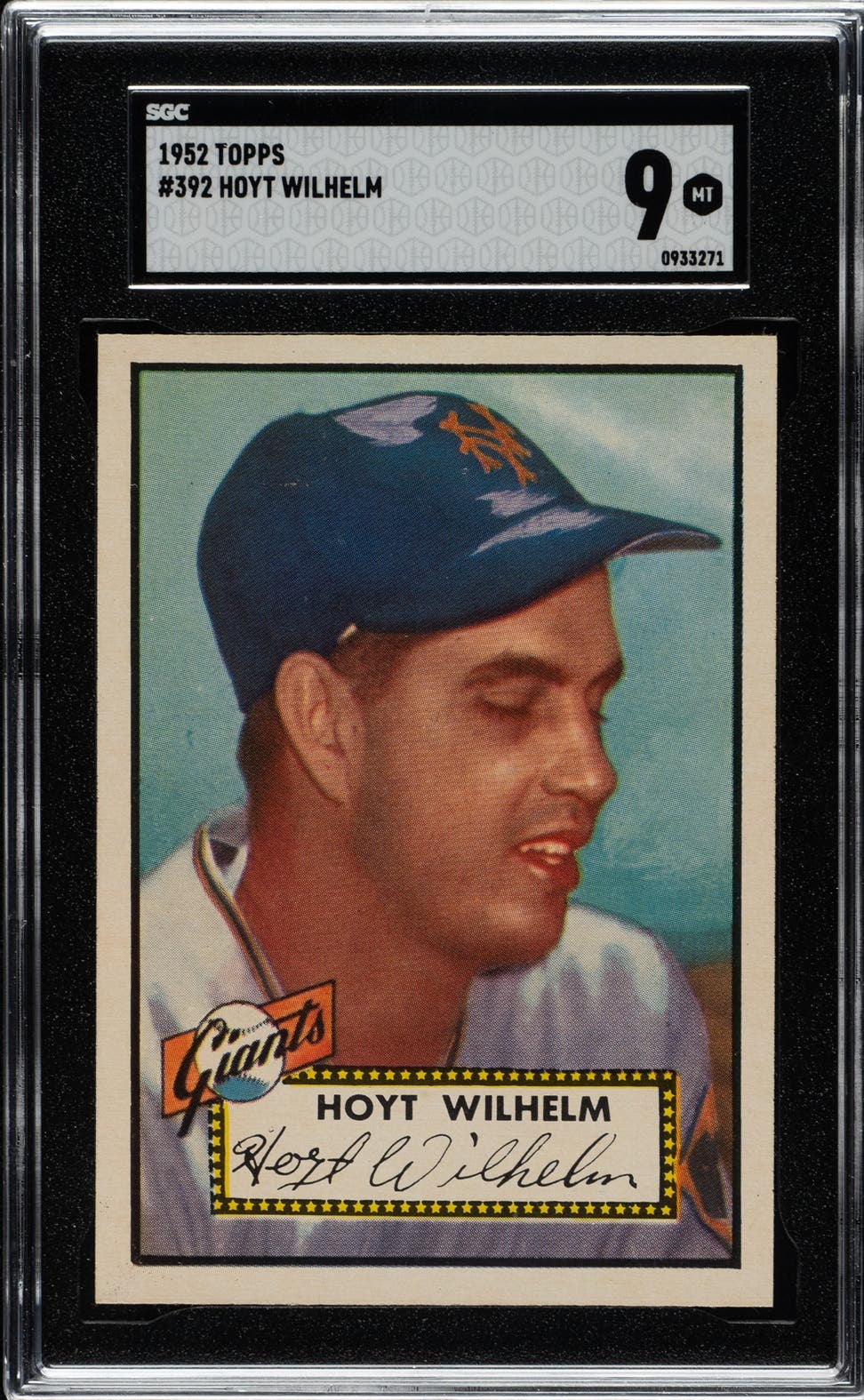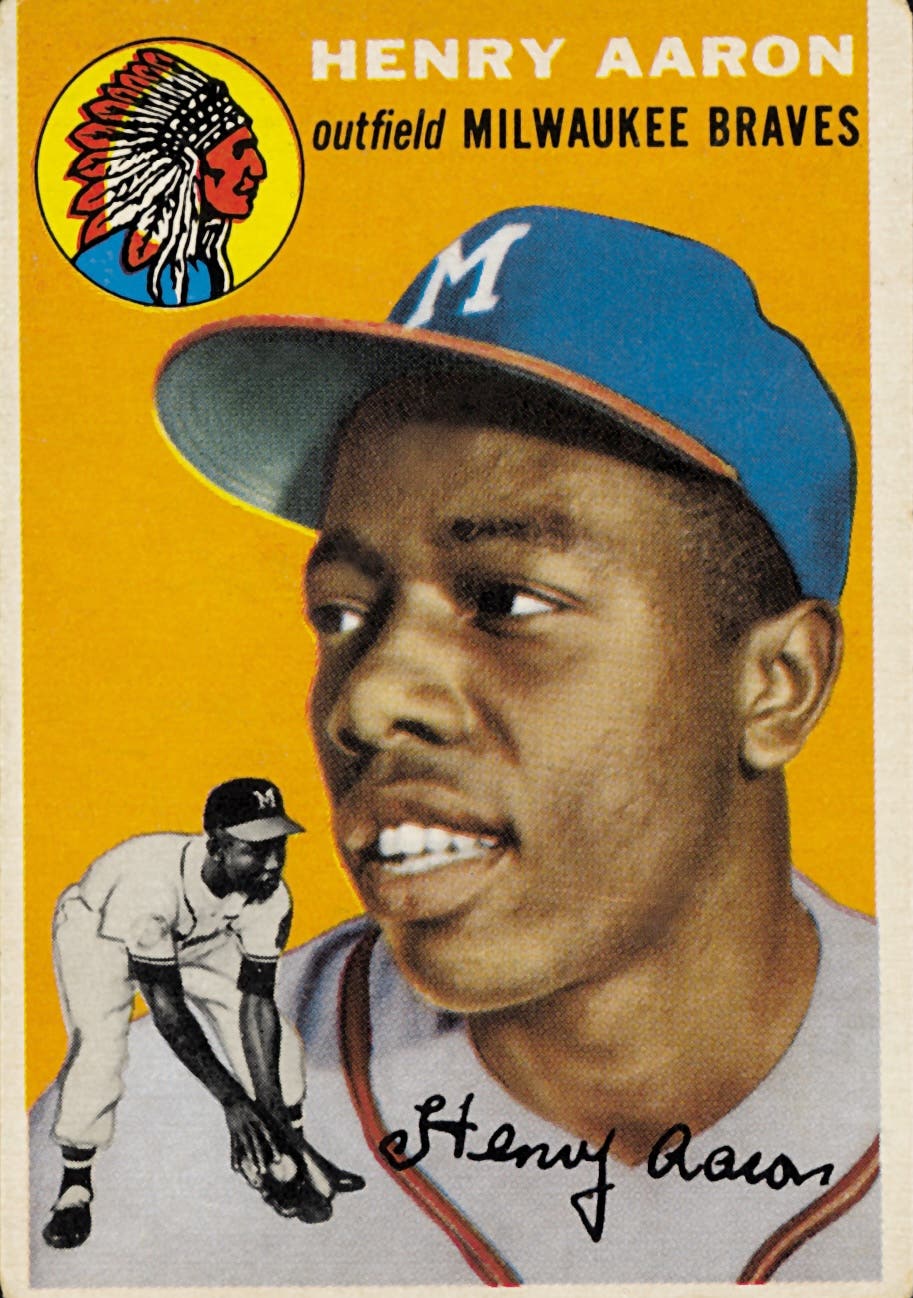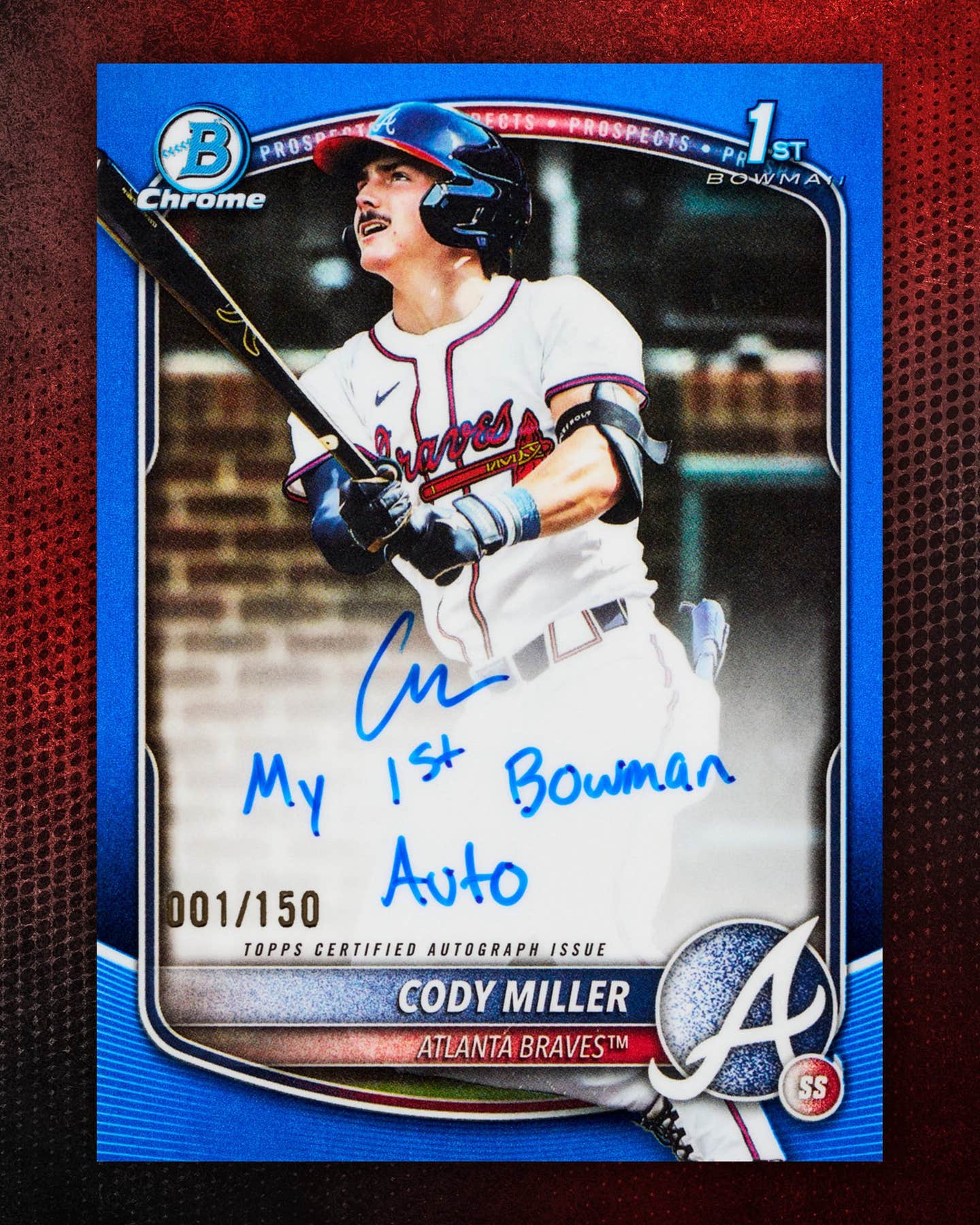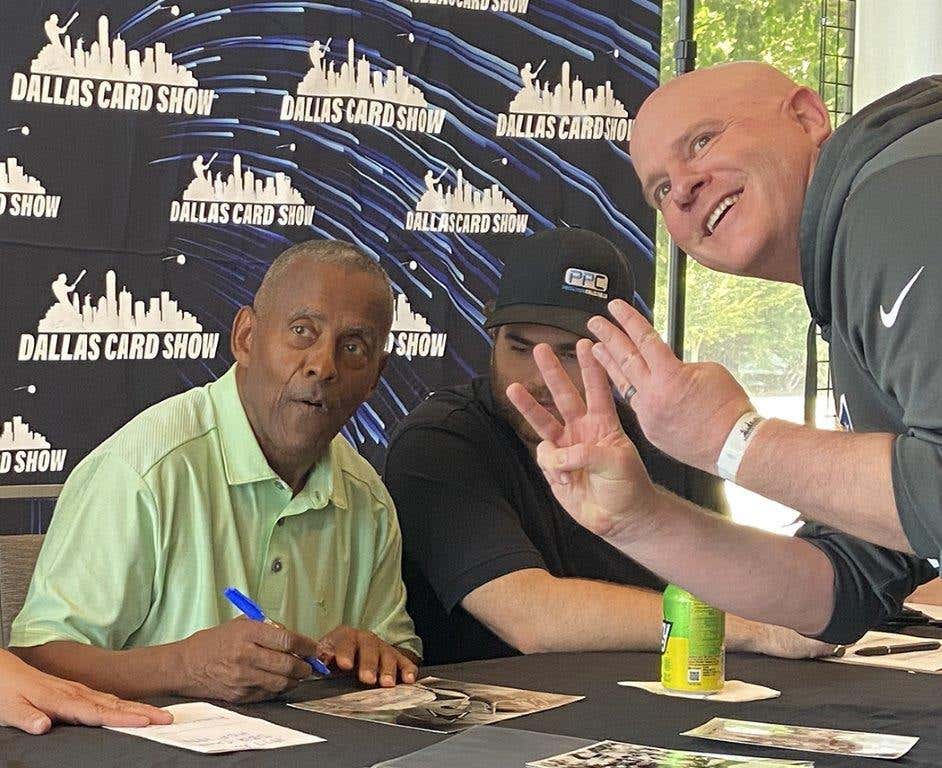Autographs
BO SAYS ‘NO’: Why some athletes won’t sign autographs on certain cards and collectibles
Snagging autographs from athletes—at a card show, before a game or in a hotel lobby—remains a big part of collecting. But as anyone who’s ever tried knows, not all signatures come easily.
Some athletes have their reasons for refusing to sign certain items. These refusals—often mysterious or deeply personal—have often sparked a world of speculation, especially in online forums where collectors trade stories.
In the world of autographs, sometimes it’s not just the signature that tells a story—it’s the refusal to sign. And for collectors, understanding these nuances can make the chase for a coveted signature all the more fascinating.
Take Bo Jackson. The man who made history as a two-sport star in both baseball and football during the 1990s has become a fan favorite at autograph shows in recent years and will make a highly-anticipated appearance at the 45th National Sports Collectors Convention July 30-Aug. 3 in Chicago.
Despite his lasting hobby popularity, Jackson has a growing list of no-gos.
In a recent note warning collectors, Mill Creek Sports warned: “Please note, Bo Jackson will not sign the following items: ‘Bat and Shoulder Pads’ photo of any kind, jersey numbers, stat jerseys, Heisman Trophy, Tecmo Bowl items and any items with Cam Newton and Pat Sullivan.”
Perhaps his most famous no-go is the iconic “Bo Knows” 1990 Score card featuring him with a bat and shoulder pads, a nod to his legendary cross-sport appeal.
The card is off-limits, much to the frustration of collectors. In 2013, photographer Richard Noble sued Nike over improper use of the image. The case was later settled, but a fallout from the litigation is that Jackson will no longer sign anything featuring this image.
In fact, PSA only has 25 of those cards autographed in their population report, making copies of the card he signed prior to the lawsuit very desirable.
Jackson, like many of the other athletes who have imposed autograph restrictions, would not comment when contacted by SCD.
You Also Might Like:
Shea Hilenbrand: Signing autographs for fans the ‘greatest gift’ for pro athletes
WARNING SIGNS
Athletes have a myriad of reasons why they won’t sign certain items—from contract disputes to a beef with other players—but that hasn’t stopped collectors from complaining.
“It’s gotten worse as time marches on,” wrote one Reddit user.
“I'm a big fan of in-person autograph collecting, but I find it’s getting less and less fun due to rising prices and increasing item restrictions,” added another.
Then there’s Arturs Irbe, the Latvian goaltender who made waves in the NHL after defecting from the Soviet Union. Irbe’s rookie card, part of the 1990-91 O-Pee-Chee Central Red Army set, is one he refuses to sign.
His reason? In 1991, as Latvia declared its independence from the Soviet Union, Irbe chose not to play for the USSR in the final days of the Cold War. For him, the card is a reminder of that time, and signing it feels like a betrayal to the cause he stood for.
Wayne Gretzky, the greatest hockey player ever, is known to sign memorabilia, but there’s one piece he simply won’t touch—his 1988-89 Topps card. This one’s personal. A relic of his blockbuster move to the Los Angeles King’s too sacred to share with others, Gretzky is known to sign it only for family members.
Sometimes the stories behind the refusals are rooted in disputes. Mark McGwire, who made headlines in the late 1980s and ’90s as part of the “Bash Brothers” duo with Jose Canseco, has a rule: He won’t sign anything featuring both of them together.
The fallout from baseball’s steroid scandal, combined with a rift between the two former teammates, made the dynamic duo’s past feel more like a distant memory for McGwire—and one he’d rather leave unsigned.
A similar story played out with Ruben Sierra, another former A’s player who, after a public feud with manager Tony La Russa, refuses to sign any items with the A’s logo or featuring him in an Oakland uniform. A trade to the New York Yankees in 1995 marked the beginning of a long-standing grudge against the A’s.
Meanwhile, MLB player Rowdy Tellez, the current DH/1B for the Seattle Mariners, won’t autograph his 2019 Topps Heritage rookie card, which features him alongside then-teammate Reese McGuire. McGuire’s 2020 arrest for exposing himself in a strip mall parking lot has caused Tellez to distance himself from the card and his former teammate.
The world of autographs isn’t just about memorabilia; it’s about moments frozen in time. But sometimes those moments carry too much weight for an athlete to relive. Take Marcus Allen, for example. The former NFL great refuses to sign the October 1981 cover of Sports Illustrated, which features him as a USC player. The article inside mentions his former teammate, O.J. Simpson, a man whose legal troubles have long overshadowed the glory of his football days.
Another football great, Peyton Manning, often a fan favorite at events, has similarly drawn a line when it comes to one issue of Sports Illustrated. The cover from September 1997—under the headline “Gator Bait Again?”—doesn’t sit well with the former NFL quarterback. Manning played his college ball at Tennessee—not at the University of Florida, which had tried to recruit him.
Manning went 0-4 against Florida during his college career. Manning did not respond to a query seeking comment on whether he would consider signing the magazine in the future. In fact, despite a Hall of Fame career, the SI cover just conjures too many bad memories.
Clemente Lisi








